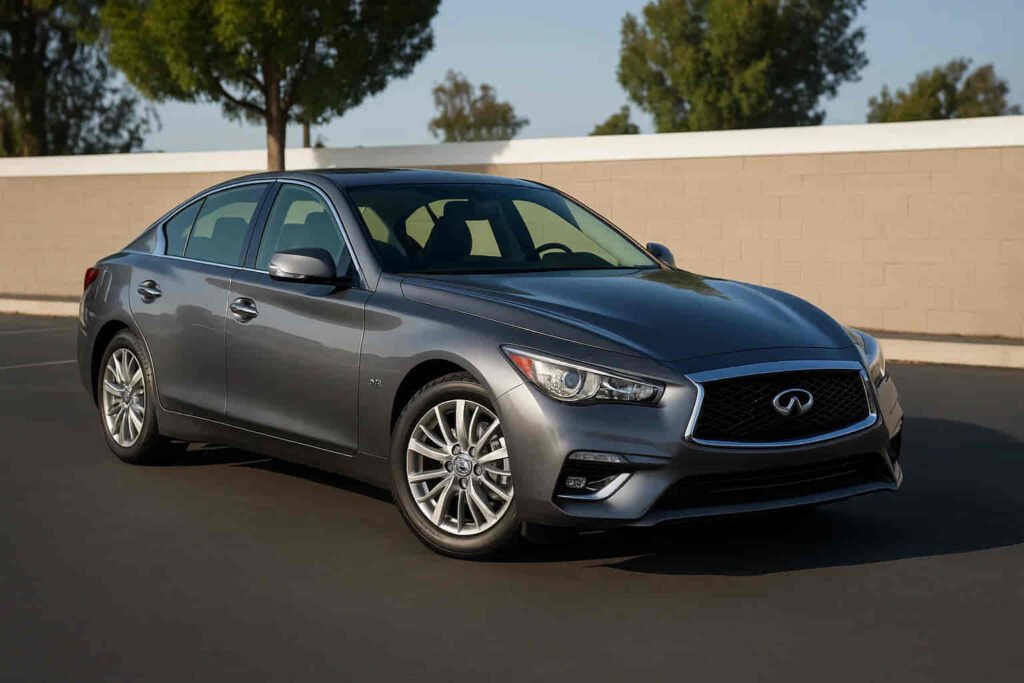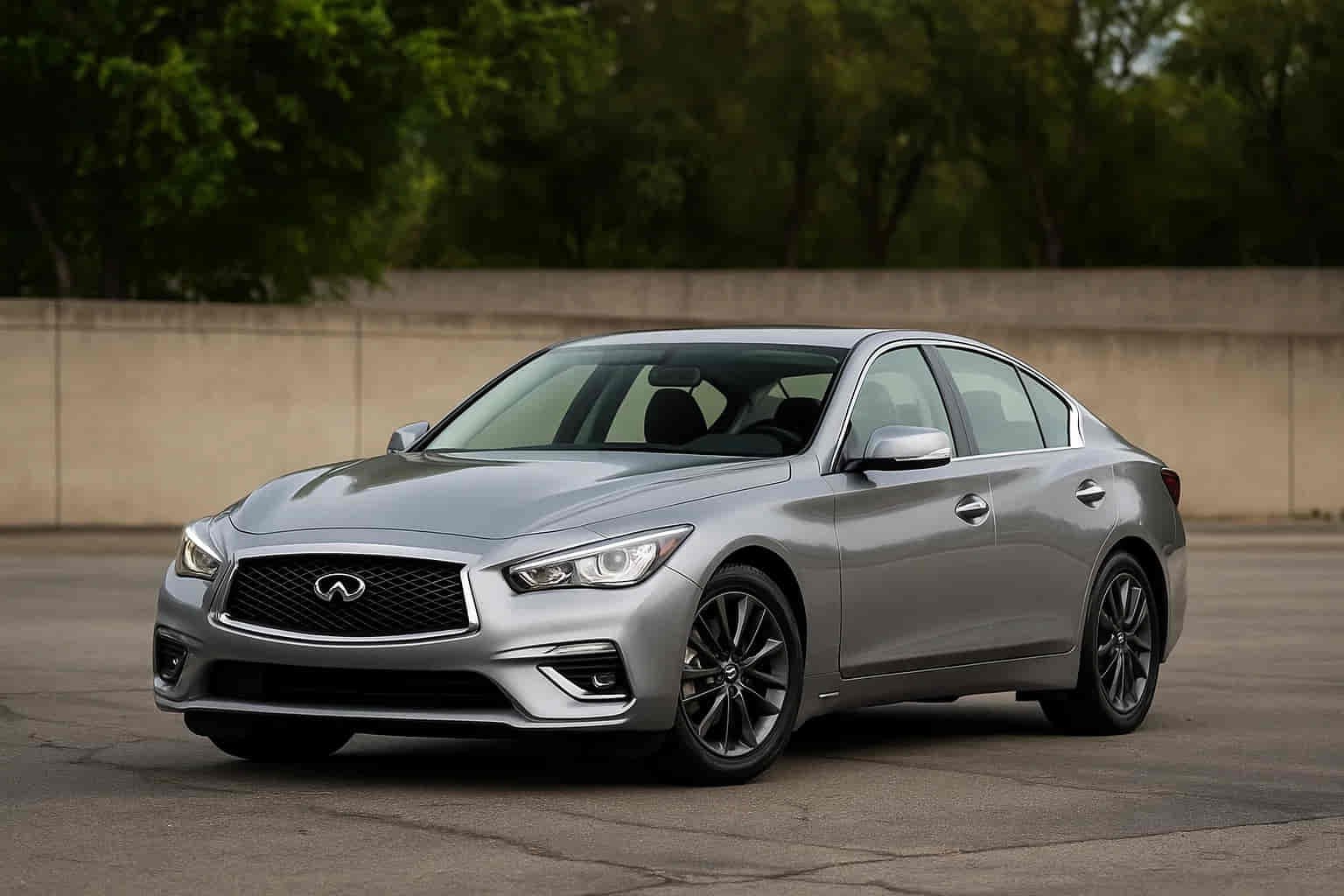For many Infiniti Q50 owners, one of the most common questions that comes up after driving this luxury sedan is simple yet crucial: what kind of gas should I use? The Infiniti Q50 has built its reputation on a blend of performance, comfort, and advanced engineering, but the choice of fuel plays a significant role in how well the car actually delivers on those promises. Understanding the Infiniti Q50 gas type is not just about saving a few dollars at the pump—it is about protecting the engine, maintaining fuel efficiency, and ensuring that the turbocharged powertrain performs the way it was designed to.
Drivers often find themselves torn between premium and regular unleaded fuel, especially when fuel prices fluctuate. Some believe regular gas is “good enough,” while others insist that premium is non-negotiable for luxury sedans like the Q50. In reality, the fuel you choose directly impacts long-term maintenance costs, performance consistency, and even resale value. This article breaks down the exact fuel requirements for every Infiniti Q50 driver, explains what happens if you opt for the wrong gas, and provides insights so you can make an informed decision at the pump with full confidence.
Infiniti Q50 Gas Type – Official Recommendation
The official recommendation from Infiniti is clear: the Q50 is engineered to run best on premium unleaded gasoline with an octane rating of 91 or higher. This is not just a marketing suggestion but a technical requirement tied to the way the engine has been designed. Most Q50 models come with turbocharged engines or high-compression setups that demand higher-octane fuel to perform optimally. Using the recommended gas type allows the car’s computer system to precisely control combustion timing, reduce the risk of engine knocking, and deliver the horsepower and torque figures advertised.
When you follow the manufacturer’s guidelines, you are not only protecting your investment but also ensuring that the luxury performance you paid for is consistently available. Many drivers underestimate the impact that the right fuel has on engine responsiveness and long-term reliability. With the proper Infiniti Q50 gas type, the vehicle runs smoother, accelerates more confidently, and avoids unnecessary strain on internal components. Skipping premium fuel may seem like a quick way to cut costs, but in reality, it undermines both the performance and the lifespan of the car.
What Happens If You Use Regular Gas in Infiniti Q50?

While some drivers are tempted to fill up their Q50 with regular unleaded fuel to save money, the reality is that this choice can carry hidden costs. The Infiniti Q50’s engine is tuned for premium gasoline, and when you substitute regular gas, the computer system compensates by adjusting ignition timing and reducing power output. This prevents severe damage in the short term, but it also means that your sedan will not deliver the sharp acceleration and smooth performance it was designed for.
Another concern is the risk of engine knocking, a condition where fuel ignites prematurely in the combustion chamber. Over time, repeated knocking can lead to increased wear on pistons, valves, and spark plugs. Even if the effects are not immediately noticeable, the long-term reliability of the engine is compromised when the wrong fuel is used.
Many Q50 owners who try regular gas report reduced fuel economy and sluggish throttle response, which eliminates any short-term savings at the pump. Simply put, while the car may “run” on regular fuel, it will never run as it should. The safest and most cost-effective decision is to consistently choose the recommended Infiniti Q50 gas type to avoid trading temporary savings for expensive repairs down the road.
Infiniti Q50 Gas Mileage & Fuel Efficiency
Fuel efficiency is one of the most practical concerns for Infiniti Q50 owners, and the type of gasoline you use has a direct influence on how many miles you get per gallon. According to EPA estimates, most Infiniti Q50 models average between 20–23 MPG in the city and 28–31 MPG on the highway, depending on engine configuration and drivetrain. These numbers, however, assume the use of the correct fuel—premium unleaded.
When premium fuel is used, the turbocharged engine operates at peak efficiency, delivering both smooth power and optimal mileage. If regular fuel is substituted, the engine’s control system adjusts to prevent knocking, which usually results in a slight drop in fuel economy. For drivers covering long distances or commuting daily, this difference adds up quickly. The small savings from choosing regular gas are often offset by having to refuel more frequently.
In addition, premium gas ensures cleaner combustion, reducing carbon buildup inside the engine over time. Cleaner combustion not only helps maintain fuel efficiency but also minimizes emissions, keeping the Q50 aligned with environmental standards. For anyone considering the balance between cost and performance, using the recommended Infiniti Q50 gas type is the only way to maximize efficiency while protecting the car’s long-term health.
Gas Type by Model Year (2014–2025)
Since its debut in 2014, the Infiniti Q50 has undergone several updates in engine design, but the fuel requirement has remained remarkably consistent. Across all model years, Infiniti has continued to recommend premium unleaded gasoline (91 octane or higher) to ensure optimal performance. Whether you own an early 2014 Q50 with the 3.7L V6 or a newer model equipped with a 3.0L twin-turbo V6, premium fuel remains the standard for protecting the engine and maintaining factory-rated horsepower.
The only slight variation comes with hybrid models, where efficiency is prioritized alongside performance. Even then, Infiniti advises premium gas for best results, as the gasoline engine still benefits from high-octane fuel to complement the electric motor’s support. For the latest 2023 and 2024 Q50 models, nothing has changed—the automaker continues to emphasize premium fuel as the recommended Infiniti Q50 gas type.
Looking ahead to the 2025 model year, there is no indication that Infiniti will lower the requirement to regular gas. Luxury automakers typically design their engines around premium fuel to balance power and efficiency, and the Q50 is no exception. Owners who stick to premium fuel across all model years will enjoy consistent performance, stronger reliability, and fewer maintenance concerns over the lifespan of their car.
Gas Type and Ownership Costs
One of the most common arguments against using premium gas is the higher price per gallon. At first glance, choosing regular fuel may seem like a simple way to reduce expenses, but when you factor in long-term ownership costs, the equation looks different. Premium fuel ensures the Infiniti Q50 engine operates as designed, which means fewer repair risks, better fuel economy, and stronger resale value. Skipping it might save a few dollars per fill-up, but it increases the chance of carbon buildup, engine wear, and reduced performance that could translate into costly repairs over time.
To put it in perspective, if the average driver covers 12,000 miles per year with a Q50 that gets around 25 MPG, the annual difference in cost between premium and regular gas is often less than $200. For a luxury sedan in the $40,000–$50,000 range, this is a relatively small expense for protecting the most important component—the engine. In comparison, repairing or replacing parts damaged by long-term use of the wrong fuel could run into thousands of dollars.
When evaluating overall ownership costs, using the correct Infiniti Q50 gas type is not just about performance—it is also about financial protection. A consistent commitment to premium fuel keeps the Q50 reliable, efficient, and valuable throughout its lifecycle, making it a smarter economic decision in the long run.
FAQs About Infiniti Q50 Gas Type
Does the Infiniti Q50 really need premium gas?
Yes. Infiniti clearly recommends premium unleaded with an octane rating of 91 or higher. While the Q50 can technically run on regular gas, doing so reduces performance and may lead to long-term engine wear.
What happens if I accidentally use regular gas once?
Filling up with regular fuel one time will not destroy the engine. The Q50’s computer will adjust ignition timing to prevent severe knocking. However, repeated use of regular gas can lower efficiency and eventually cause internal damage.
Can I mix premium and regular gas in my Infiniti Q50?
Mixing is not harmful, but the result will simply average the octane level. To achieve the performance and protection the Q50 is built for, it is best to stick with premium consistently.
Do hybrid Infiniti Q50 models have different fuel needs?
Not really. Even the Q50 Hybrid models are designed for premium gasoline, as the internal combustion engine still benefits from high-octane fuel.
Is premium gas worth the extra cost?
Absolutely. The slight increase in annual fuel expense is minor compared to the potential cost of repairs or the loss of performance from using regular gas. Choosing the recommended Infiniti Q50 gas type ensures that your luxury sedan delivers its full potential every day.
Conclusion
Choosing the correct fuel may seem like a small detail, but for a performance-focused luxury sedan like the Infiniti Q50, it makes all the difference. From the earliest 2014 models to the latest 2025 edition, the automaker has consistently emphasized premium unleaded fuel as the official recommendation. This is not about marketing—it is about ensuring that the advanced turbocharged engine operates at peak efficiency, delivers the horsepower promised, and avoids costly long-term damage.
While some drivers may be tempted to use regular gas to save money, the trade-offs in performance, fuel efficiency, and reliability outweigh any short-term savings at the pump. Premium gasoline protects your investment, keeps your driving experience smooth, and helps maintain resale value over time. Simply put, the right Infiniti Q50 gas type is the foundation of worry-free ownership.
If you are an Infiniti Q50 owner or considering becoming one, following the manufacturer’s fuel guidelines is one of the simplest yet smartest decisions you can make. After all, why compromise the full luxury and performance of your sedan for a few dollars per fill-up? Have you ever experimented with different fuel types in your Q50? Share your experience and let other drivers know how it affected your car.

